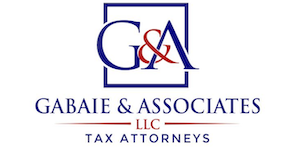Receiving a letter from the IRS can be heart-stopping under the best circumstances. But when the letter claims you owe the government money, it can be overwhelming and hard to know where to turn or what to do next. However, following up after receiving any notice from the IRS is important, particularly if it’s a notice of intent to levy your accounts or income or seize your property. An experienced tax attorney can help.
What is CP504, and What Does it Mean?
A CP504 notice is a letter from the IRS notifying you that they have not received payment for an unpaid balance. This letter also indicates an intent to levy from the IRS. If you fail to act, they can legally seize your property or assets, levy your bank account, paycheck, and even your social security benefits.
What Should I Do After Receiving a CP504 Notice from the IRS?
It’s important to note that you should never ignore a CP504 notice from the IRS, and there are some immediate actions you can take:
1. Read the CP504 notice carefully. It will explain how much you owe and your payment options.
2. If you agree with the balance you owe, you can pay it in full or request a payment plan from the IRS.
3. If you disagree with the amount or liability, the CP504 notice will explain your appeal rights. Typically, you will have 30 days to appeal through the collection appeals process.
4. You may also be able to make an offer in compromise if you cannot pay the balance. The IRS may be unable to collect because of financial hardship, or the amount of your liability is in question.
Where Can I Turn for Help?
If you have an unpaid balance from the IRS and you’ve received a notice of an intent to levy your assets, don’t panic. The experienced tax attorneys at Gabaie & Associates, LLC. can guide you through the process, negotiate with the IRS on your behalf, and help you avoid tax problems in the future. We’ve been helping people like you nationwide with federal tax disputes for years, and we get results. Call us at 410-358-1500 or contact us online to schedule your free consultation.

